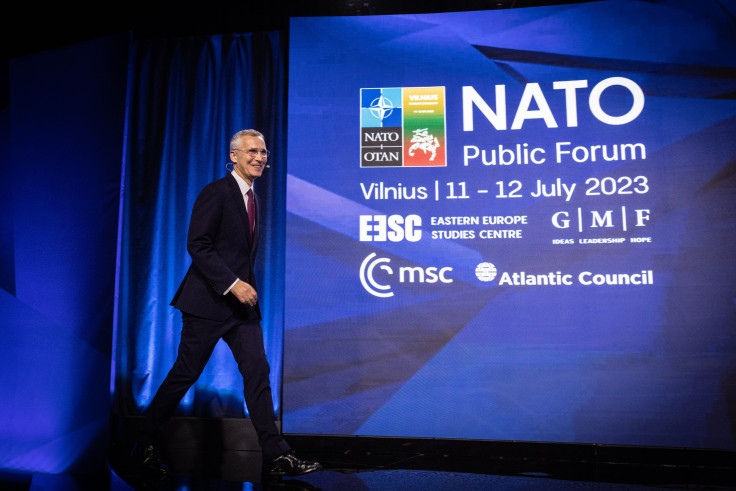New polling reveals public attitudes towards NATO across the alliance ahead of this year's summit
NATO had published new polling figures which show the extent of public support across the 31 member-states of the alliance.

When it comes to foreign policy, public opinion is important. Particularly in democracies where the electorate will punish political parties for unpopular policies, governments need to justify their financial and political commitments to international defence policies.
Published ahead of the 2023 NATO Summit which takes place in Vilnius today and tomorrow (the 11th and 12th of July), the results of a recent survey conducted by NATO have shown that support for the defence alliance across its 31 member states is strong.
This year's NATO summit brings together leaders from member states and key partners to cooperate on international security as the global international community faces diplomatic tensions. Indeed, the ongoing war in Ukraine is a reminder of the humanitarian consequences that are paid when diplomacy fails to secure peace between nation-states.
The new figures published in the pre-summit polling results provide a breakdown of civilian views towards NATO across its 31 member-states. The research behind the figures entailed 30,481 interviews across the 31 NATO member states and Sweden, which is set to become a formal member in due course.
Across the whole alliance, 73 per cent of respondents consider NATO to be "important to the future security of their nation". Furthermore, 70 per cent of respondents said they would vote for their country's membership of NATO in a national referendum. The survey results also highlighted that 73 per cent of respondents across NATO member states support maintaining or increasing defence spending.
As well as showing general support for the alliance across its membership, the polling shows support for Ukraine and disapproval of Russia. Across the NATO alliance, a total of 65 per cent either "strongly support" or "tend to support" the provision of support for Ukraine. Furthermore, 66 per cent of NATO citizens describe their opinion of Russia as "unfavourable", with just 10 per cent possessing a "favourable" view of Russia.
According to NATO Secretary General Jens Stoltenberg, this year's Summit "will bring Ukraine closer to NATO". Stoltenberg recently secured his position as NATO Secretary General for an extra year until October 2024. NATO cooperation with Ukraine dates back to the 1990s when the eastern European state joined the North Atlantic Cooperation Council in 1991 and the Partnership for Peace programme in 1994.
Whilst Ukraine is not a formal member of NATO, the alliance has clearly articulated strong opposition to Russia's actions. NATO has demanded that "Russia stop the war immediately, withdraw all its forces from Ukraine and engage in genuine diplomacy".
Speaking today (the 11th of July) at the NATO Public Forum, Stoltenberg has articulated his confidence that NATO leaders would work towards "strong and united decisions on Ukraine, both to sustain and step up our support". On the issue of Ukraine's potential membership in NATO, Stoltenberg also stated his confidence that "allies will reaffirm that Ukraine will become a member". Indeed, the Ukrainian President has articulated his hope that the summit will clearly signal that Ukraine will become a NATO member in the future.
More specifically, in addition to considering Ukraine's path to full membership, NATO will cooperate at the summit to agree on "a multi-year package of assistance", as well as "upgraded political ties with a new NATO-Ukraine Council".
Britain in NATO
What does NATO's research reveal about British attitudes towards NATO?
The pre-summit survey asked respondents across NATO member-states whether they feel their country is "more safe, as a result of the cooperation between North American and European NATO nations".
Of British respondents, 66 per cent said they felt more safe because of Britain's membership of NATO. Only 11 per cent said they felt less safe, and 24 per cent said they don't know. Across the whole alliance, an average of 59 per cent say they feel safer because of NATO membership, with 19 per cent saying they feel less safe, and 22 per cent saying they don't know.
Furthermore, 78 per cent of British respondents said they would vote for membership of NATO in a referendum. As stated above, across the whole alliance, this figure averaged out at 70 per cent. Therefore, as a NATO member, Britain has a slightly more positive outlook towards the alliance than average.
On the issue of defence spending, things are less clear-cut. NATO's survey asked whether national defence spending should be maintained, increased or decreased. A reported 34 per cent of British respondents said that defence spending should be increased, whilst 38 per said that defence spending should be maintained. Just 14 per cent said that we should spend less on defence, with a further 14 per cent saying they don't know.
In 2022, Britain's defence spending amounted to 2.1 per cent of GDP. Moreover, only nine NATO members (including Britain) met this target in 2022. In the Integrated Review Refresh 2023, the British government articulated the target of increasing defence spending as a proportion of GDP to 2.5 per cent. However, no deadline has been set for this target.
© Copyright IBTimes 2024. All rights reserved.





